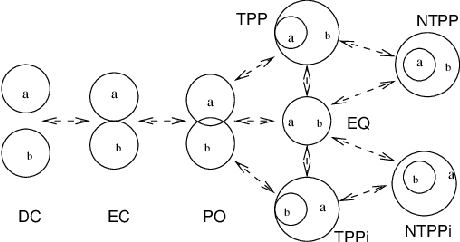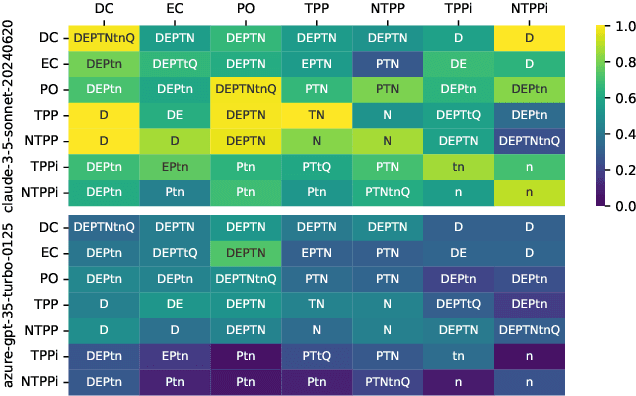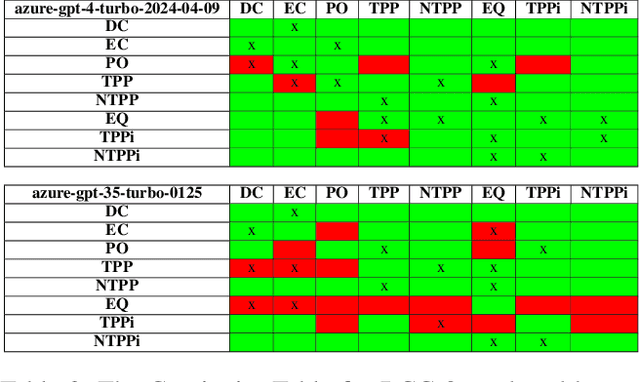Can Large Language Models Reason about the Region Connection Calculus?
Paper and Code
Nov 29, 2024



Qualitative Spatial Reasoning is a well explored area of Knowledge Representation and Reasoning and has multiple applications ranging from Geographical Information Systems to Robotics and Computer Vision. Recently, many claims have been made for the reasoning capabilities of Large Language Models (LLMs). Here, we investigate the extent to which a set of representative LLMs can perform classical qualitative spatial reasoning tasks on the mereotopological Region Connection Calculus, RCC-8. We conduct three pairs of experiments (reconstruction of composition tables, alignment to human composition preferences, conceptual neighbourhood reconstruction) using state-of-the-art LLMs; in each pair one experiment uses eponymous relations and one, anonymous relations (to test the extent to which the LLM relies on knowledge about the relation names obtained during training). All instances are repeated 30 times to measure the stochasticity of the LLMs.
 Add to Chrome
Add to Chrome Add to Firefox
Add to Firefox Add to Edge
Add to Edge